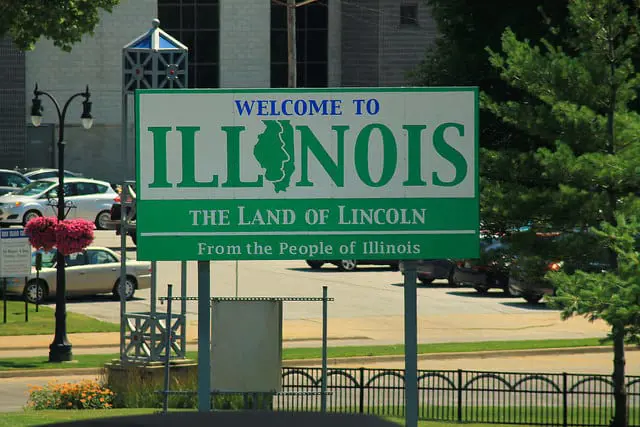Illinois to consider four sports betting amendments
The Illinois House Rules Committee is to run the rule over four separate amendments to a bill to regulate sports betting, giving the state legislature a choice of which regulatory framework to pursue for the vertical.

The Illinois House Rules Committee is to run the rule over four separate amendments to a bill to regulate sports betting, giving the state legislature a choice of which regulatory framework to pursue for the vertical.
Each of the amendments would be made to House Bill 3308, a bill filed on February 15 by Representative Michael Zalewski, then referred to the House Rules, and Revenue and Finance Committees. However HB3308 lacks any sort of detail on regulation, only only stating that it would create the Sports Wagering Act.
However, Zalewski and three other Representatives have now proposed the four amendments to determine which regulatory model will be pursued.
Three of these amendments include a measure whereby operators would need to pay a fee of $10m (£7.6m/€8.8m) to secure a licence in the state, whereas the fourth option focuses on the idea of the state lottery running all sports wagering services in Illinois, leaving out all other providers.
The first amendment, dubbed the ‘Classical New Jersey’ option by local media in the state and put forward by Zalewski, would allow operator licences for all riverboats and licensees in accordance with the Horse Racing Act of 1975. Licensees would be permitted to offer land-based, online and mobile betting to consumers. In addition to the initial $10m licence fee, operators would face a renewal fee of $250,000 every five years.
Mobile and online betting with two skins would also require a separate licence costing $1m, plus a $500,000 renewal fee every five years. In terms of tax, the amendment proposes a 15% tax on land-based revenue, as well as 20% of online and mobile revenue. The Illinois Gaming Board would be responsible for regulating the market.
The second of the four amendments, which is being referred to as the Mississippi Model and was filed by Representative Katie Stewart, would allow for land-based and online betting at licensed off-the-board (OTB), racetracks and casinos in Illinois.
A total of 10 online operators would be permitted to operate in the state, with the idea of limiting these to casino properties. Licences would again cost an initial $10m, as well as a $500,000 renewal fee every five years, $250,000 in management services fees and $100,000 in supplier costs.
The second option also sets out measure for operators to pay a 0.20% ‘royalty’ on their sports betting handle to professional sports leagues and, in exchange, they would have access to official league data. Taxes would be set at 15% of adjusted gross sports wagering receipts, while the Illinois Gaming Board would again regulate the market.
Option three, dubbed the ‘Professional Sports Leagues’ amendment and submitted by Representative André Thapedi, would again permit land-based, online and mobile sports wagering, with operators to pay $10m to secure a licence.
Licensees would face a tax of 12.5% on annual adjusted gross sports wagering receipts, in addition to a requirement to pay 0.25% of their sports handle to the Illinois Gaming Board. For this latter fee, the Board would oversee the distribution of royalties to sports governing bodies or their designees.
This arrangement would require licensed operators to use official league data to offer in-play betting services to punters, as well as to share anonymous betting data with the leagues in real-time as part of integrity efforts.
Representative Elizabeth Hernandez's fourth amendment differs greatly to the first three options in that it sets out plans for the Illinois Department of the Lottery to take jurisdiction over all sports betting activities in the state.
Appropriately dubbed the ‘Lottery Oversight’ amendment by local media, this option would see all sports betting conducted through the Department of the Lottery. The Department would also have the final say on the type of bets that can be placed and how much can be wagered at its retail locations.
As such, sports betting would be limited to land-based activities only, with the state to collect 50% of the adjusted gross sports wagering receipts for tax purposes. Monies would be deposited in equal amounts to the Pension Stabilisation Fund, Common School Fund, and State Construction Account Fund.
All four of the amendments are currently with the House’s Rules Committee for further discussion, after which the bill will progress to the Revenue and Finance Committee. The Illinois legislative session is due to run until May 31.
Last month, new Illinois Governor J.B Pritzker raised hopes of legal sports betting in the state after including $200m in future tax revenue from wagering activities in his 2020 budget proposal.
Pritzker plans are similar to HB3308 in that he is proposing to legalise sports betting at facilities across the state, with consumers able to place bets in-person or online. Those betting via the internet would be able to do so from inside Illinois or in a jurisdiction that has entered into a reciprocal agreement with the state.
A total of 20 sports wagering licences would be available in Illinois at a cost of $10m each under Pritzker’s plans, plus an annual renewal fee of $5,000. Licence-holders would pay tax at a rate of 20% on sports betting revenue.
Image: formulanone